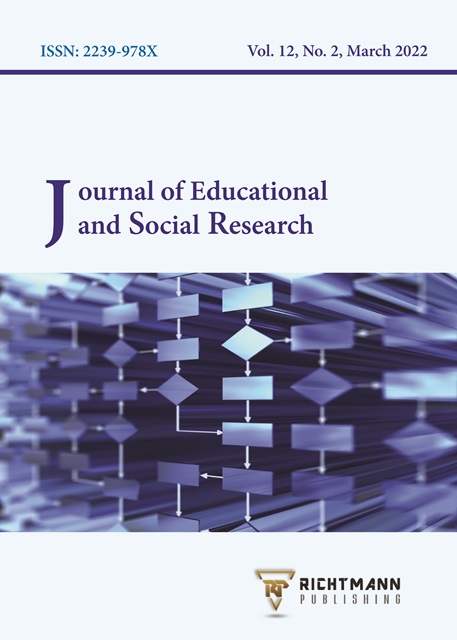The Predictive Ability of Superstitious Thinking in Motivation for Achievement among MA Students at Al-Balqa Applied University
DOI:
https://doi.org/10.36941/jesr-2022-0036Keywords:
Superstitious thinking, Motivation for Achievement, Master's students, Al Balqa Applied UniversityAbstract
This study aimed to identify the predictive ability of superstitious thinking in the achievement motivation among master's students in Al Balqa Applied University. To achieve the objectives of the study, two scales were developed: A questionnaire to measure superstitious thinking and a questionnaire to measure achievement motivation after ensuring their validity and reliability. The study sample consisted of (212) males and females. After using arithmetic means, standard deviations, t-test, Pearson correlation coefficient, and simple regression analysis, the results of the study found the following: The level of superstitious thinking among master's students in Al Balqa Applied University was low. There are no statistically significant differences in the level of superstitious thinking due to the gender variable. There are no statistically significant differences in the level of superstitious thinking due to the college variable. The level of achievement motivation was high. There are statistically significant differences in the levels of achievement motivation due to the gender variable in favor of females. There are statistically significant differences in achievement motivation among master's students due to the type of college variable in favor of scientific colleges. There is a negative correlation with statistical significance between superstitious thinking and achievement motivation. Superstitious thinking as a whole has a contribution to predicting achievement motivation.
Received: 22 November 2021 / Accepted: 14 December 2021 / Published: 5 March 2022
Downloads
Downloads
Published
Issue
Section
License

This work is licensed under a Creative Commons Attribution-NonCommercial 4.0 International License.
This work is licensed under a Creative Commons Attribution-NonCommercial 4.0 International License.









